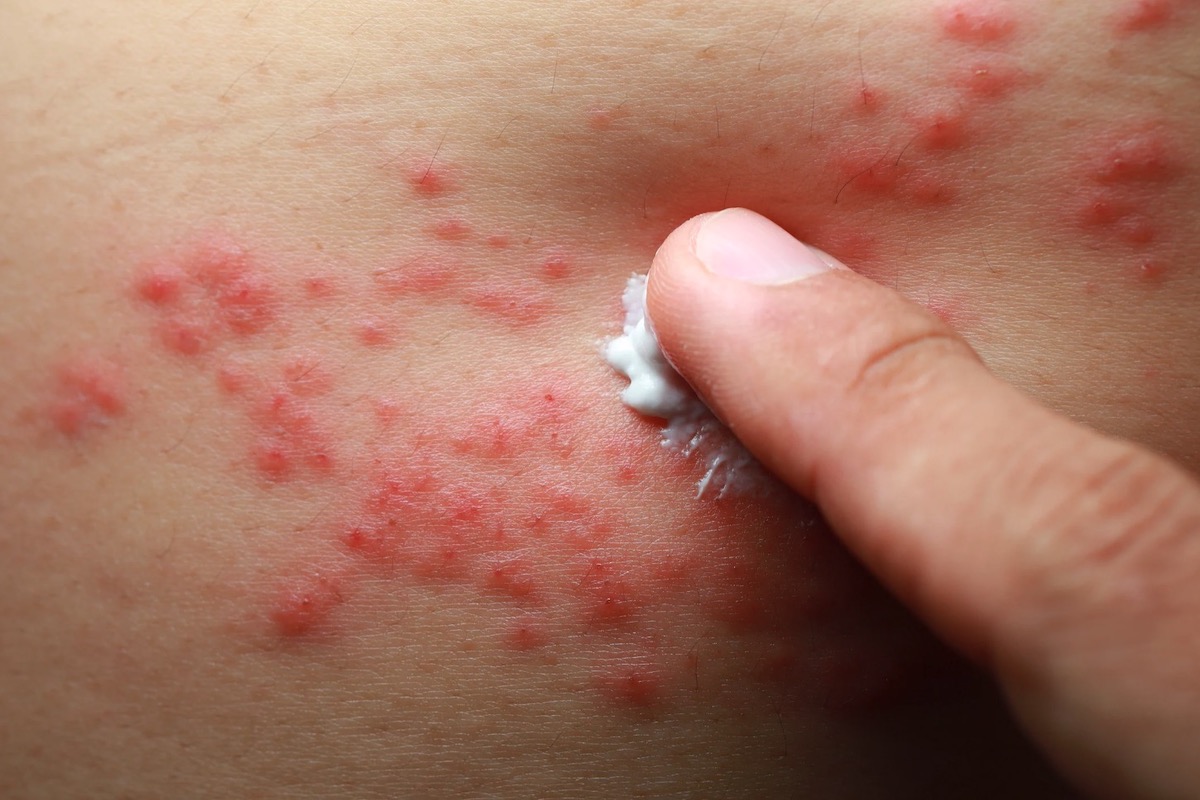Eczema is a general term used to describe a group of skin conditions that cause redness, itching, and inflammation, while atopic dermatitis is a specific type of eczema that is often associated with allergies and can run in families. The key difference between atopic dermatitis and other types of eczema is that atopic dermatitis is often associated with other allergic conditions such as asthma and hay fever and tends to appear on specific parts of the body such as the face, scalp, and limbs of children.

Symptoms of Atopic Dermatitis
Atopic dermatitis is a skin condition that can cause a range of symptoms. The most common symptom of atopic dermatitis is dry and itchy skin. This can cause discomfort and lead to scratching, which can worsen the condition. It’s important to note that these symptoms can vary from person to person and may come and go. Other symptoms of atopic dermatitis include:
- Inflammation of the skin
- Red or brownish-gray patches on the skin
- Appearance of bumps or blisters on the skin
- Formation of scales or crusts on the skin
- Thickening or leathery texture of the skin
- Skin discoloration
- Oozing or crusting of the affected areas
- Sleep disturbances due to the itching
Treatments Options
There are several treatment options available for atopic dermatitis, depending on the severity of the symptoms. One of the most common treatments is the use of moisturizers to help alleviate dry and itchy skin. Moisturizers can help repair the skin barrier and prevent further irritation. Other treatment options include:
- Topical corticosteroids to reduce inflammation
- Topical calcineurin inhibitors to reduce inflammation and itching
- Antihistamines to relieve itching
- Light therapy to reduce inflammation
- Systemic medications (such as oral corticosteroids) for severe cases
In addition to these treatments, it’s important to identify and avoid triggers that can worsen symptoms. It’s important to work with a healthcare provider to develop a treatment plan that works best for you. In some cases, a combination of treatments may be necessary to manage symptoms and prevent flare-ups.
In case you suffer from undiagnosed atopic dermatitis, it’s important to visit a professional healthcare provider – preferably a dermatologist. He or she is specialized in cases like yours and will examine what kind of skin problem you’re suffering from. A dermatologist will make its diagnosis via a patch test and set up a treatment plan once the diagnosis is made. It’s important to seek treatment options that suit you, that’s why you should always do your online research. To make it easier for you, start your online search here:

